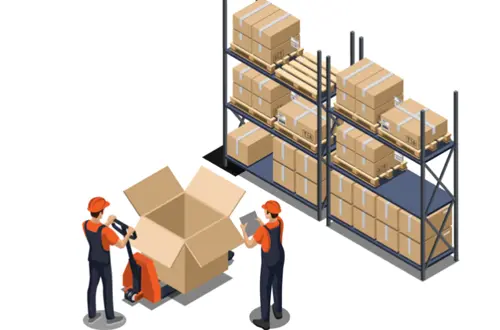How should the logistics industry reduce carbon emissions in 2024?
In 2024, reducing carbon emissions will become the focus of global attention, especially for logistics companies. Shippers and carriers are increasingly focused on cost, capacity, service and carbon footprint. Data show that the United States accounts for a quarter of total global transportation-related emissions, emitting 1.84 billion tons of carbon dioxide in 2022. U.S. companies are expected to step up emissions reduction actions in 2024.
Although Indonesia's pace of carbon reduction lags behind that of the United States, it is still making progress. Recent research shows that 10% of Indonesian customers are willing to pay extra for sustainable goods and services, and 74% choose sustainable brands. Indonesian companies are reducing carbon emissions in logistics operations as demand for sustainability increases.
What impact does the logistics industry have on carbon emissions?
- Emissions during transportation
Fuel combustion during logistics transportation is one of the main sources of carbon emissions. Including the transportation, warehousing, distribution and other aspects of goods. Fuel-driven transportation is usually required, such as trucks, ships, airplanes, etc. These vehicles release greenhouse gases such as carbon dioxide when burning fuel.

- Transportation mode selection
Air freight and long-distance road transport are generally more intensive than rail, sea and inland waterway transport. When logistics companies choose transportation modes, they will directly affect carbon emissions.
- Warehousing and distribution process
Energy consumption in warehousing facilities and empty truck rates during transportation also have an impact on carbon emissions. For example, the energy consumption of large warehouses, the operation of refrigeration equipment, and the way goods are stacked will all have an impact on carbon emissions.
- Packaging materials and handling
The freight and logistics industry often requires large amounts of packaging materials to protect goods, which releases greenhouse gases during packaging production, transportation and handling. Especially for plastic packaging materials, the production process consumes a large amount of fossil fuels, and harmful substances are also released during processing.
- Supply chain management
Logistics companies affect carbon emissions throughout the product life cycle through supply chain management. For example, improvements in energy efficiency, transportation efficiency, inventory management, etc. in the logistics and supply chain industry can reduce carbon emissions.
Measures to effectively reduce carbon emissions in the logistics industry
Promote the use of low-emission transport
Logistics companies can encourage employees to use electric vehicles, hybrid vehicles or transportation using renewable energy for delivery. Such as electric vehicles and green ships to replace traditional fuel vehicles. At the same time, a network of charging piles and filling stations will be established to support the widespread application of electric vehicles.
Governments can provide tax incentives or subsidies to encourage businesses to purchase green transportation.
Optimize transportation routes and cargo mix
Using logistics technology and data analysis, logistics companies can optimize delivery routes through intelligent route planning systems. To minimize travel distance and time, reduce air freight and long-distance transportation, thereby reducing carbon emissions and saving energy consumption.
Promote intermodal transport and give priority to low-carbon transport modes such as railways, maritime transport and inland waterways, especially for bulk goods.
Promote the adoption of renewable energy
Support the development and promotion of transportation using renewable energy sources, such as solar or wind-powered transport vehicles. Logistics companies are encouraged to join green energy cooperation projects, such as purchasing renewable energy certificates or participating in renewable energy projects.
Promote shared transportation and smart logistics
Promote the shared logistics model. Third party logistics industry companies can cooperate to share transportation resources and distribution networks to reduce the problem of empty vehicles and low logistics efficiency. At the same time, smart logistics technologies such as Internet of Things devices and real-time monitoring systems are introduced. Improve transportation efficiency and minimize empty runs and congestion.
Use the Internet of Things, big data and artificial intelligence technology to reduce energy consumption and waste, and optimize the warehousing and transportation process.
Strengthen carbon emissions monitoring and reporting
Implement unified carbon emission monitoring and reporting standards to ensure that companies accurately measure, record and report carbon emission data.
Logistics companies can establish carbon emission monitoring systems to regularly collect, analyze and report carbon emission data to ensure that companies have a clear understanding of their own emissions. The establishment of transparency will encourage companies to take more proactive measures to reduce emissions, while also demonstrating the company's environmental responsibility to customers and stakeholders.
Encourage suppliers and partners to join carbon neutrality programs
Work with supply chain partners to set carbon neutrality goals and establish a cooperation mechanism for sustainable development. Logistics companies can work together with transportation providers, warehousing partners and customers to jointly reduce greenhouse gas emissions and promote sustainable development throughout the supply chain. By working together, we can achieve carbon neutrality goals and contribute to environmental protection.
Promote cross-industry and cross-border cooperation to jointly solve the carbon emission problem in the supply chain and promote sustainable development.
The above are the measures to reduce carbon emissions in the logistics industry. Through these detailed measures, the logistics industry can more effectively reduce carbon emissions and contribute to environmental protection and sustainable development.










